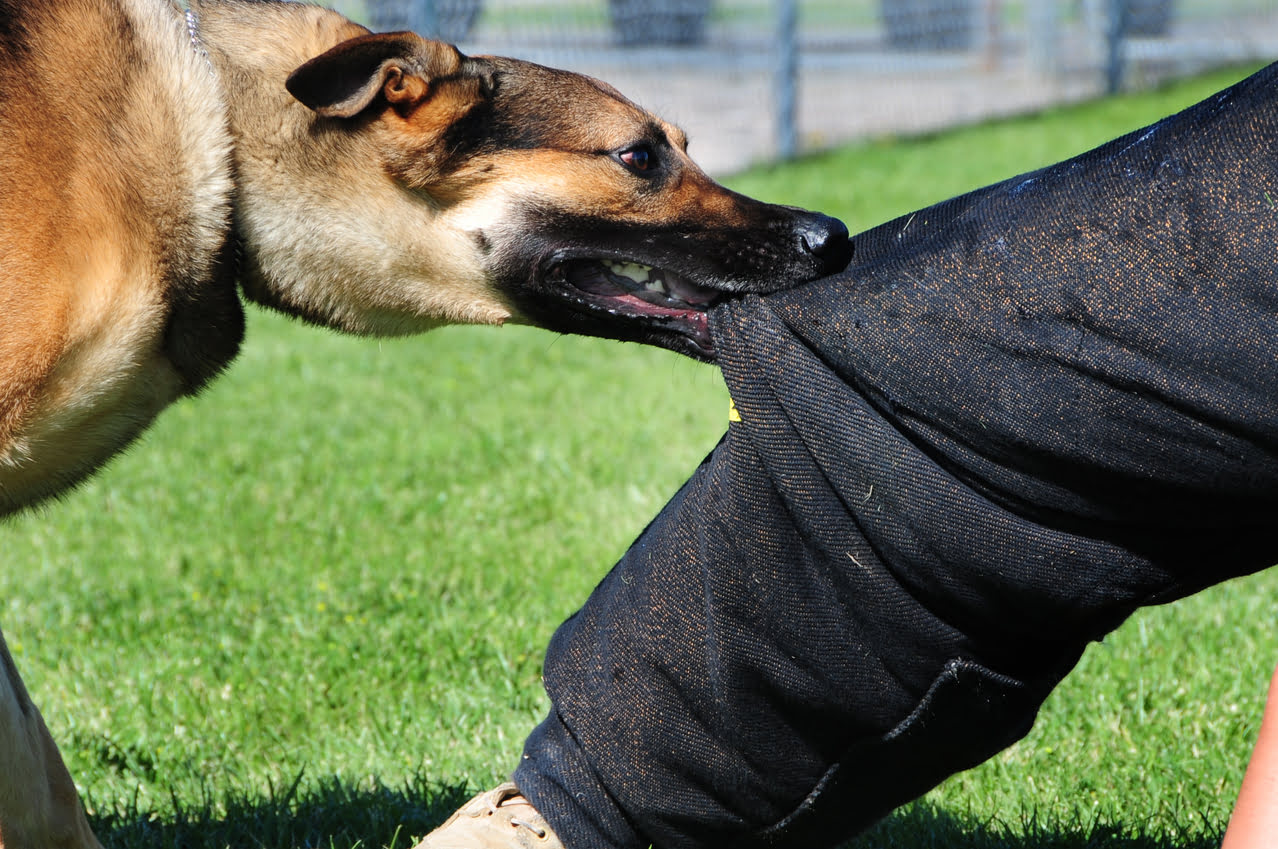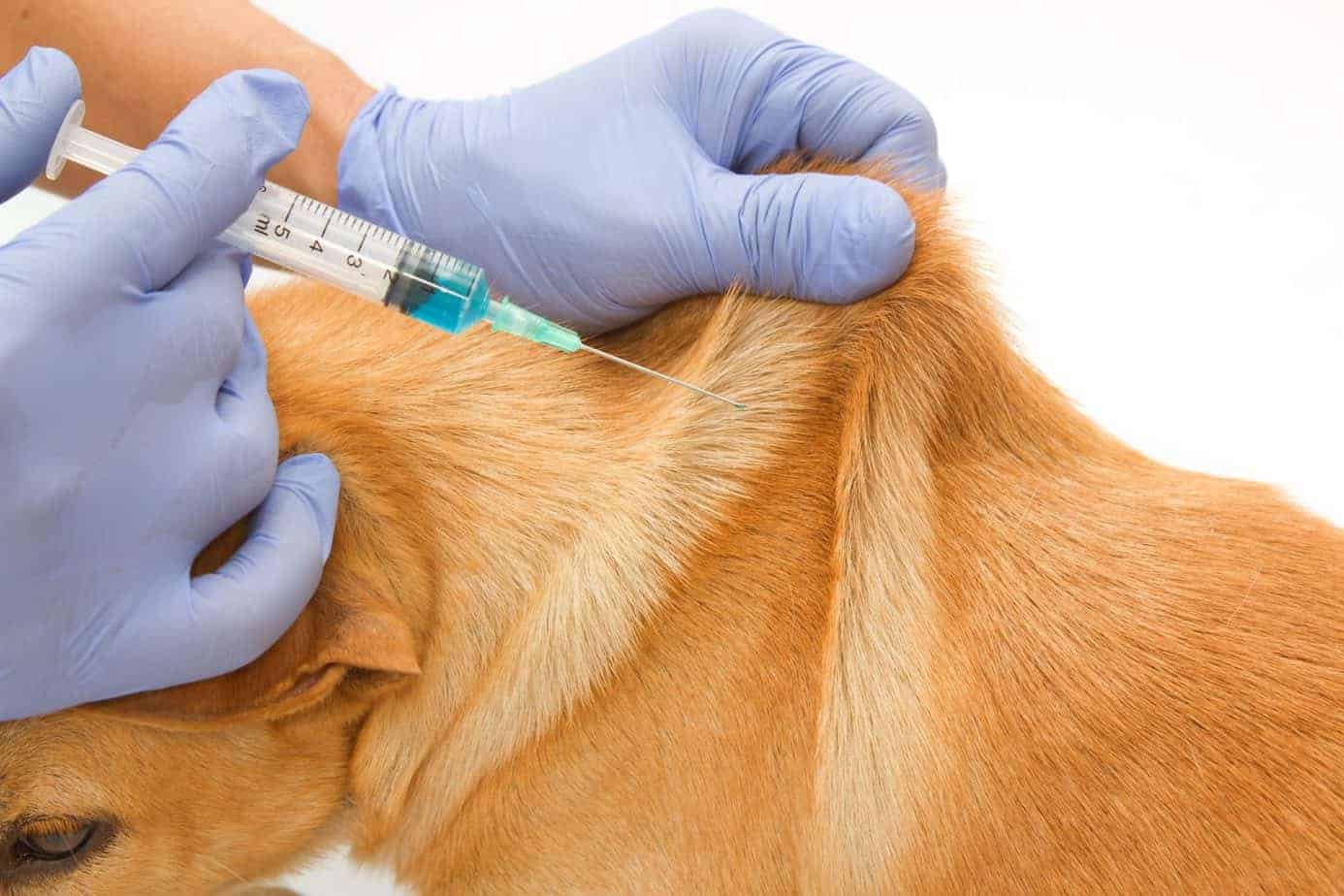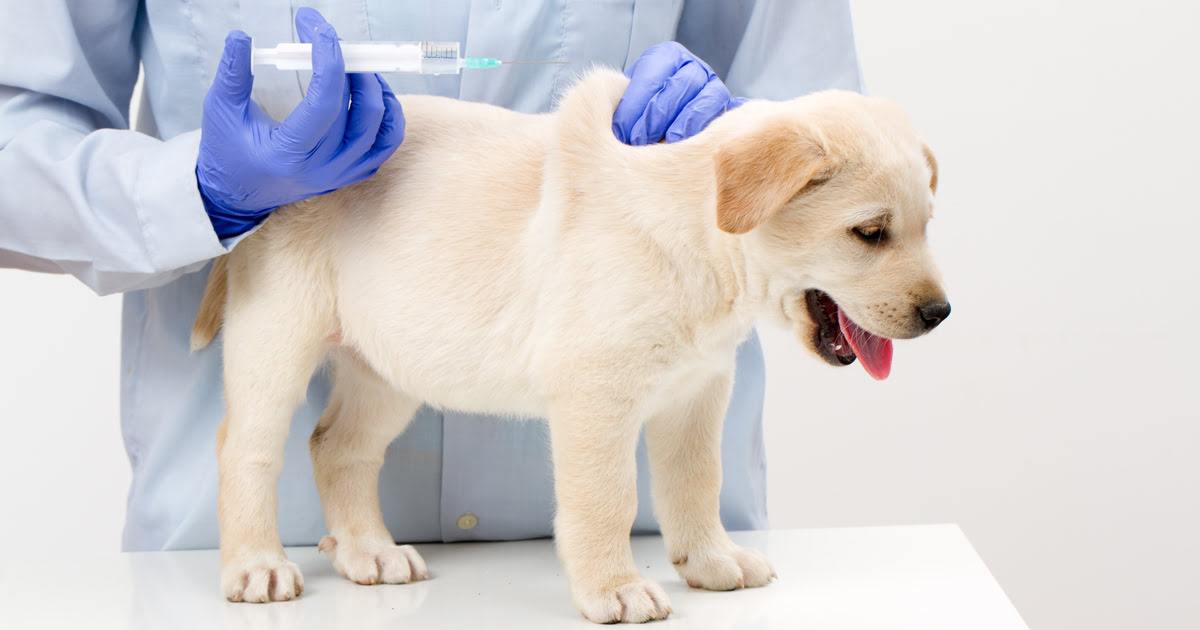Home>Health & Wellness>Common Health Issues>What States Require Rabies Vaccination Tags On Dogs


Common Health Issues
What States Require Rabies Vaccination Tags On Dogs
Modified: March 1, 2024
Learn about common health issues for dogs and find out which states require rabies vaccination tags to keep your furry friend healthy and compliant with local regulations.
(Many of the links in this article redirect to a specific reviewed product. Your purchase of these products through affiliate links helps to generate commission for Pawsomeoldies.com, at no extra cost. Learn more)
Table of Contents
Introduction
Rabies is a deadly viral disease that can affect all mammals, including humans. It is primarily transmitted through the bite of an infected animal, with dogs being one of the most common carriers of the virus. To prevent the spread of rabies and protect both canine companions and the general public, many states in the United States have implemented strict vaccination requirements for dogs.
Ensuring that dogs receive the necessary rabies vaccinations and are properly tagged is crucial for maintaining public health and safety. In this article, we will delve into the specific regulations surrounding rabies vaccination tags for dogs in different states, as well as the importance of compliance with these requirements. Understanding these regulations is essential for dog owners to fulfill their responsibilities and contribute to the overall well-being of their pets and communities.
Understanding Rabies Vaccination Requirements for Dogs
Rabies vaccination requirements for dogs are established to safeguard public health and prevent the spread of this fatal virus. In the United States, these requirements are typically mandated at the state level, with specific regulations dictating the frequency and administration of rabies vaccinations for dogs. The primary objective of these regulations is to ensure that dogs are adequately protected against rabies and to minimize the risk of transmission to humans and other animals.
In most states, dogs are required to receive their first rabies vaccination at around 12-16 weeks of age, followed by a booster shot within one year. Subsequently, dogs may receive additional booster vaccinations every one to three years, depending on the state's regulations. It is important to note that the timing and frequency of rabies vaccinations may vary from state to state, so dog owners should familiarize themselves with the specific requirements in their location.
Once a dog has been vaccinated against rabies, they are typically issued a rabies vaccination tag, which serves as a visible indicator of their vaccination status. This tag is usually attached to the dog's collar and contains essential information such as the vaccination date, expiration date, and the administering veterinarian's details. The presence of this tag not only demonstrates compliance with state regulations but also provides a means of identification in the event of a dog bite or potential rabies exposure.
Furthermore, rabies vaccination requirements are not only crucial for public health but also play a significant role in protecting the vaccinated dogs themselves. By ensuring that dogs are up to date with their rabies vaccinations, owners can mitigate the risk of their pets contracting the virus from wildlife or other infected animals. This proactive approach not only safeguards the well-being of the dogs but also contributes to the overall containment of rabies within communities.
Understanding and adhering to rabies vaccination requirements for dogs is a fundamental responsibility for every dog owner. By staying informed about the specific regulations in their state and diligently ensuring their dog's compliance, owners actively contribute to the collective effort to prevent the spread of rabies and uphold public safety.
In the subsequent sections, we will explore the specific states that require rabies vaccination tags for dogs, as well as exemptions or special circumstances that may apply in certain regions. Understanding these nuances is essential for dog owners to navigate the diverse landscape of rabies vaccination regulations across the United States.
States Requiring Rabies Vaccination Tags for Dogs
Rabies vaccination tags for dogs are a crucial component of public health initiatives in numerous states across the United States. These tags serve as tangible evidence of a dog's compliance with rabies vaccination requirements, providing a visible means of identification and verification of vaccination status. Understanding the specific states that mandate the use of rabies vaccination tags is essential for dog owners to ensure full compliance with local regulations and contribute to the collective effort to prevent the spread of rabies.
In the United States, the majority of states require dogs to be vaccinated against rabies and to wear a visible rabies vaccination tag on their collar. These tags typically display pertinent information such as the vaccination date, expiration date, and the administering veterinarian's details. By visibly displaying this information, dog owners can demonstrate their pet's compliance with state-mandated vaccination requirements, thereby promoting public safety and responsible pet ownership.
Some of the states that strictly enforce the use of rabies vaccination tags for dogs include California, New York, Texas, Florida, and Pennsylvania, among others. These states have established clear regulations stipulating that dogs must be vaccinated against rabies and wear a visible tag as proof of vaccination. By adhering to these requirements, dog owners play a pivotal role in upholding public health and safety within their communities.
Furthermore, the use of rabies vaccination tags not only fulfills regulatory obligations but also serves as a proactive measure to protect dogs from potential rabies exposure. In the event of a dog bite or encounter with wildlife, the presence of a visible rabies vaccination tag facilitates swift identification of the dog's vaccination status, enabling appropriate measures to be taken to safeguard public health.
Understanding the specific states that mandate rabies vaccination tags for dogs empowers dog owners to proactively comply with these regulations and contribute to the broader goal of preventing the spread of rabies. By ensuring that their dogs are properly vaccinated and visibly tagged, owners actively participate in the collective effort to maintain public health and safety, while also safeguarding the well-being of their beloved canine companions.
In the subsequent sections, we will delve into exemptions or special circumstances related to rabies vaccination requirements in certain states, shedding light on the nuances that may impact compliance with these regulations. Understanding these intricacies is essential for dog owners to navigate the diverse landscape of rabies vaccination requirements across different states in the United States.
States with Exemptions or Special Circumstances
While the majority of states in the United States mandate the use of rabies vaccination tags for dogs, there are certain exemptions or special circumstances that warrant careful consideration. Understanding these nuances is essential for dog owners to navigate the diverse landscape of rabies vaccination requirements across different states.
In some states, exemptions may be granted for dogs with specific health conditions that contraindicate the administration of rabies vaccinations. These exemptions are typically contingent upon certification from a licensed veterinarian, who can attest to the dog's health status and provide documentation supporting the exemption. Additionally, some states may offer exemptions for dogs that have demonstrated severe allergic reactions to previous vaccinations, thereby necessitating a tailored approach to ensure the dog's well-being while maintaining public safety.
Furthermore, certain states may impose special circumstances related to rabies vaccination requirements, particularly in instances where dogs are deemed to be at low risk of rabies exposure. For example, states with extensive rural areas or limited wildlife populations may implement modified vaccination protocols for dogs residing in these regions. These modified protocols may involve extended vaccination intervals or alternative vaccination schedules, taking into account the unique environmental factors that influence the risk of rabies transmission.
Additionally, states with robust public health and veterinary oversight may establish provisions for conditional rabies vaccination requirements, particularly in cases where compelling reasons exist to deviate from standard regulations. These conditional provisions are typically subject to stringent evaluation and approval processes, ensuring that any deviations from standard vaccination requirements are justified by compelling public health or animal welfare considerations.
It is important for dog owners to familiarize themselves with the specific exemptions or special circumstances that apply in their respective states. By staying informed about these nuances, owners can navigate the complexities of rabies vaccination requirements and ensure that their dogs receive appropriate consideration in cases where exemptions or special circumstances are warranted.
Understanding the exemptions and special circumstances related to rabies vaccination requirements empowers dog owners to advocate for the well-being of their pets while upholding public health and safety. By actively engaging with these nuanced aspects of state regulations, owners play a pivotal role in promoting responsible pet ownership and contributing to the broader efforts to prevent the spread of rabies.
In the subsequent sections, we will underscore the importance of compliance with rabies vaccination requirements and the significant impact it has on public health and the well-being of dogs.
Importance of Compliance with Rabies Vaccination Requirements
Compliance with rabies vaccination requirements is of paramount importance, serving as a cornerstone of responsible pet ownership and public health protection. The stringent regulations surrounding rabies vaccinations for dogs are designed to mitigate the risk of rabies transmission, safeguard the well-being of both animals and humans, and uphold community safety.
First and foremost, compliance with rabies vaccination requirements is a fundamental obligation for dog owners to ensure the health and safety of their pets. By adhering to state-mandated vaccination schedules and ensuring that their dogs are up to date with their rabies vaccinations, owners provide a crucial layer of protection against the potentially fatal consequences of rabies infection. This proactive approach not only shields dogs from the perils of rabies but also contributes to the overall containment of the virus within communities.
Moreover, compliance with rabies vaccination requirements plays a pivotal role in public health preservation. Rabies is a zoonotic disease, meaning it can be transmitted from animals to humans, posing a significant public health threat. By ensuring that dogs are vaccinated against rabies and visibly tagged, owners actively participate in the collective effort to prevent the spread of the virus, thereby reducing the risk of human exposure. This concerted effort is instrumental in maintaining public safety and minimizing the incidence of rabies-related health concerns within communities.
Furthermore, compliance with rabies vaccination requirements facilitates swift and efficient response in the event of potential rabies exposure. In cases where a dog bite or wildlife encounter occurs, the presence of a visible rabies vaccination tag expedites the identification of the dog's vaccination status, enabling appropriate measures to be taken to mitigate the risk of rabies transmission. This not only safeguards the individuals involved but also streamlines public health interventions, thereby containing the potential spread of the virus.
In essence, compliance with rabies vaccination requirements is a fundamental responsibility that transcends individual pet ownership, encompassing broader implications for public health and safety. By diligently adhering to these regulations, dog owners actively contribute to the collective endeavor to prevent the spread of rabies, protect the well-being of their pets, and uphold the overall welfare of their communities. Therefore, understanding and complying with rabies vaccination requirements is an indispensable commitment that underscores the pivotal role of responsible pet ownership in preserving public health and safety.
In the subsequent sections, we will delve into the specific states that require rabies vaccination tags for dogs, shedding light on the nuances of these regulations across different regions.
Read more: Where Do I Get My Dog’s Licensing, Vaccine, And Rabies Replacement Vaccinations Dog Tags In Utah?
Conclusion
In conclusion, the regulations surrounding rabies vaccination requirements for dogs are integral to safeguarding public health, protecting canine companions, and upholding community safety. The implementation of these regulations at the state level underscores the collective commitment to prevent the spread of rabies and mitigate the associated risks for both animals and humans. By ensuring that dogs receive the necessary rabies vaccinations and are visibly tagged, dog owners actively contribute to this overarching goal while fulfilling their responsibilities as responsible pet owners.
The diverse landscape of rabies vaccination regulations across different states underscores the need for dog owners to stay informed and compliant with the specific requirements in their respective locations. From states that strictly mandate the use of rabies vaccination tags to those with exemptions or special circumstances, the nuances of these regulations reflect the dynamic considerations involved in preserving public health while accommodating unique situations that may impact compliance.
Compliance with rabies vaccination requirements not only safeguards the individual health and well-being of dogs but also plays a pivotal role in preventing the transmission of rabies to humans. The visible presence of rabies vaccination tags serves as a tangible demonstration of compliance, facilitating swift identification of vaccinated dogs and streamlining public health interventions in the event of potential rabies exposure. This proactive approach contributes to the collective effort to contain the spread of the virus and maintain public safety within communities.
As such, the significance of compliance with rabies vaccination requirements extends beyond individual pet ownership, encompassing broader implications for public health preservation. By upholding these regulations, dog owners actively participate in the shared responsibility to prevent the spread of rabies, protect their pets, and contribute to the overall welfare of their communities. Understanding the nuances of these regulations and ensuring full compliance is a fundamental commitment that underscores the pivotal role of responsible pet ownership in preserving public health and safety.
In essence, the comprehensive understanding and adherence to rabies vaccination requirements for dogs are essential components of responsible pet ownership and public health protection. By recognizing the importance of these regulations and actively complying with them, dog owners play a vital role in the collective endeavor to prevent the spread of rabies and uphold the well-being of both animals and humans.














